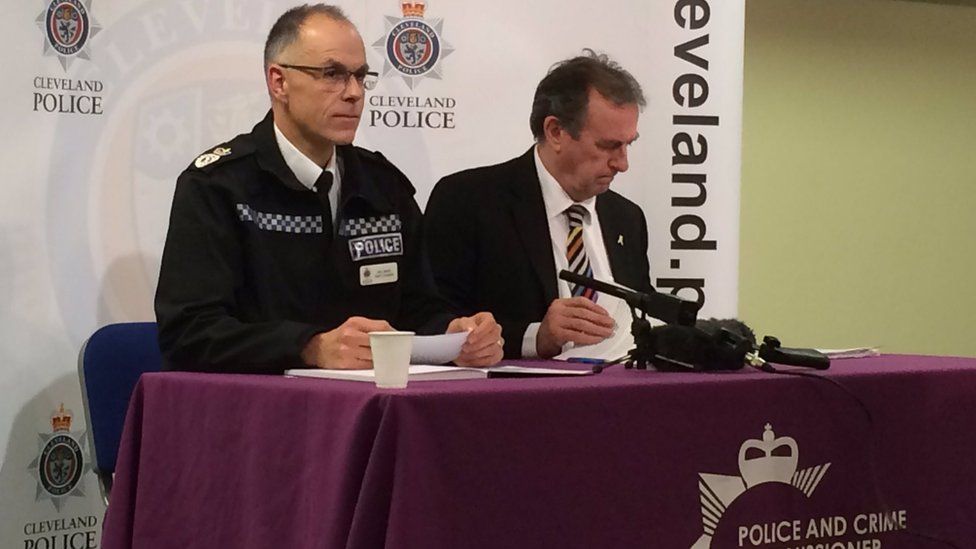Cleveland Police wrong to track ex-officers' phones
- Published

Earlier this month Chief Constable Iain Spittal (l) and PCC Barry Coppinger (r) announced a major overhaul of the force's professional standards department
Cleveland Police acted unlawfully in monitoring the phones of two of its former officers, a tribunal has ruled.
A judge found the legislation it used, normally reserved for anti-terror investigations, was not proportionate.
The force said it was justified as there had been tip-offs to journalists, which may have been a criminal offence.
But the United Kingdom Investigatory Powers Tribunal found there was no proof of this, and no evidence of any legal advice to support its actions.
On 5 January, the force announced a major overhaul of its professional standards department, and apologised to the two Northern Echo journalists after admitting to unlawfully accessing their private phone records.
But it claimed it was within its rights to use the Regulation of Investigatory Powers Act (RIPA) legislation to secretly monitor the calls of two of its officers in 2012.
However, judges at the tribunal in London were critical of the force, and copies of the judgement are now being sent to Her Majesty's Inspectorate of Constabulary and the Independent Police Complaints Commission.
'Specialist lawyers'
The report, which was due to be published on Tuesday, was briefly released on Monday.
In response, Chief Constable Iain Spittal said: "Although I have already contacted the people affected by this and said sorry, sorry on its own isn't enough.
"Because of this, the Police and Crime Commissioner and I announced earlier this year an expert review of the professional standards department and all RIPA use over the past six years."
A spokesman said a change in the law introduced in 2015 means police must now obtain judicial approval to view journalists' telecoms records in cases where they are trying to identify their sources.
Cleveland Police and Crime Commissioner Barry Coppinger said: "I accept this judgment of the hearing and I am concerned to read of the mistakes that the force made in the actions it took five years ago.
"The Chief Constable has apologised to those affected and it is right that this was done.
"What is important now is that the force understands how it got it so wrong and ensures that doesn't happen again.
"A team of specialist lawyers has now been appointed to review any similar monitoring of calls over the past six years. We will publish their findings."
- Published15 December 2016